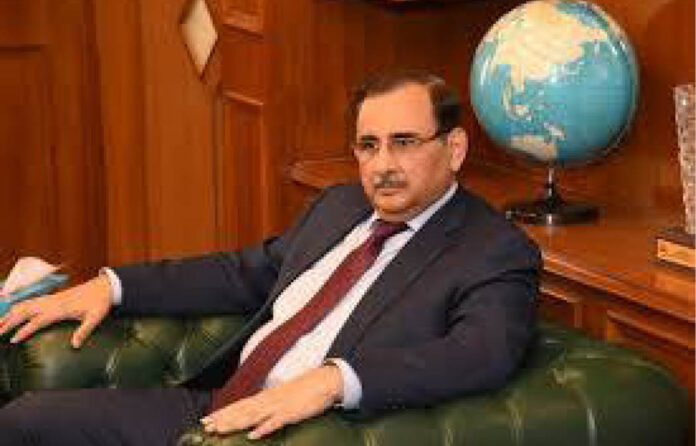Anjum Nisar says interbank and open market rates gap giving rise to grey market
Islamabad
Expressing dissatisfaction over dollar availability for import of raw material the Federation of Pakistan Chambers of Commerce and Industry’s Businessmen Panel (BMP) on Sunday stressed the need for stopping cross-border smuggling of foreign currency and other valuable items in order to bring economic and financial stability in the country, as the agencies concerned have failed to make any serious progress in this regard.
FPCCI former president and BMP Chairman Mian Anjum Nisar observed that the government will have to initiate strict and vigilant operations against the illegal cross border movement of foreign currency, urea, wheat and other items by the Customs, law enforcement and intelligence agencies.
He called for making a clear roadmap to strengthen anti-smuggling regime in the country, taking practical measures to show some progress on anti-smuggling achievements.
The Pakistan Customs, FIA and the Interior ministry should sit together and take pragmatic measures to curb the menace of smuggling instead of hollow slogans, he urged.
Mian Anjum Nisar further stressed upon the need of coordination among all the concerned agencies for this purpose by taking comprehensive and combined action against those involved in the smuggling activities and currency speculation. The relevant authorities should speed up their operations to curb cross-border smuggling and in this regard a regular review meeting on anti-smuggling operations should also be held on weekly basis.
While highlighting the economic situation in the country, he stressed upon the need of coordination among all the necessary platforms for this purpose, emphasizing the relevant authorities to devise a robust and proactive road map to curb the cross-border smuggling of various items in order to bring economic and financial stability in the country.
Quoting the reports, he said that the recent ranking of the rule of law index issued by the World Justice Project placed Pakistan at 129 out of 140 countries, whereas the corruption perception index rated it at 140 out of 180. These rankings testify that our governance system is compromised, and our institutions have failed to perform their assigned roles. Pakistan is currently passing through the worst economic phase of its existence and independent experts are continuously warning about the risk of default.
Foreign exchange reserves of Pakistan are reduced to their lowest level, whereas inflation, according to official sources, is hovering over 23 percent though in reality it is much higher, especially in rural areas. Being an import-based country, we are dependent on the dollar rate.
In the last few years, the rupee has devalued by over 100 percent. Though we opted for an open market where the demand for dollars is very high but the the State Bank of Pakistan has remained unsuccessful in stopping inter-bank manipulation of the exchange rate.
Although the government has implemented additional requirements for documenting purchase of dollar, the gap between interbank and the open market rate is widening and actually has given rise to yet another grey market where the American dollar is traded at a premium of almost 10 percent the official interbank rate and that too without any legal formalities of furnishing of particulars and biometric etc.
Weak border controls, particularly with respect to Afghan-Transit Trade, constitute another major factor that has added to our economic woes. Vested interests in connivance with law enforcement agencies, and their reluctance to tighten monitoring of cross-border movement of items such as currency, urea, wheat, sugar, and other household goods has resulted in Pakistan paying a huge price for these self-created lapses.
Sharing its porous and unmanned borders with Iran and Afghanistan, Pakistan since its inception has always faced a daunting challenge in controlling the illegal operations of smugglers who take advantage of unregulated trade in cigarettes, livestock, and food items, including wildlife and petroleum products in addition to currency.
The absence of a comprehensive and potent policy to prevent this illegality, failure to not only equip border security agencies with modern combat weapons but also sufficient moral incentives has led to accumulation of illicit wealth parked in safe havens for the traffickers.
It has ripped apart the country’s economic fabric. Unlicensed operators in Pakistan play a major role in facilitating movement of criminal proceeds generated through fraudulent invoicing and other means. According to reports, the volume of the hundi and hawala business alone crossed $15 billion.
In its report, Bringing Finance to Pakistan’s poor Access to Finance for Small Enterprises and the Underserved, the World Bank mentions that the average Pakistani household remains outside the formal financial system, saving at home and borrowing from family or friends in cases of dire need.












